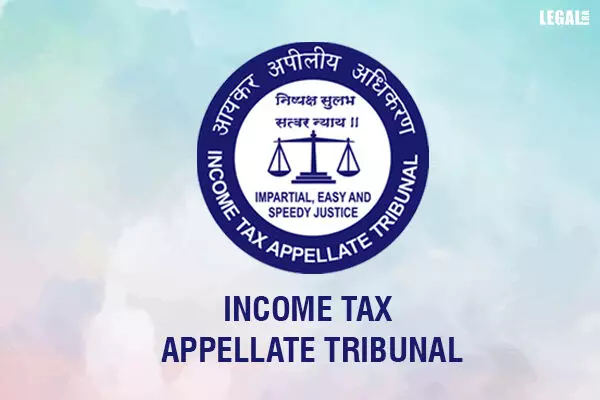- Home
- News
- Articles+
- Aerospace
- Agriculture
- Alternate Dispute Resolution
- Banking and Finance
- Bankruptcy
- Book Review
- Bribery & Corruption
- Commercial Litigation
- Competition Law
- Conference Reports
- Consumer Products
- Contract
- Corporate Governance
- Corporate Law
- Covid-19
- Cryptocurrency
- Cybersecurity
- Data Protection
- Defence
- Digital Economy
- E-commerce
- Employment Law
- Energy and Natural Resources
- Entertainment and Sports Law
- Environmental Law
- FDI
- Food and Beverage
- Health Care
- IBC Diaries
- Insurance Law
- Intellectual Property
- International Law
- Know the Law
- Labour Laws
- Litigation
- Litigation Funding
- Manufacturing
- Mergers & Acquisitions
- NFTs
- Privacy
- Private Equity
- Project Finance
- Real Estate
- Risk and Compliance
- Technology Media and Telecom
- Tributes
- Zoom In
- Take On Board
- In Focus
- Law & Policy and Regulation
- IP & Tech Era
- Viewpoint
- Arbitration & Mediation
- Tax
- Student Corner
- AI
- ESG
- Gaming
- Inclusion & Diversity
- Law Firms
- In-House
- Rankings
- E-Magazine
- Legal Era TV
- Events
- News
- Articles
- Aerospace
- Agriculture
- Alternate Dispute Resolution
- Banking and Finance
- Bankruptcy
- Book Review
- Bribery & Corruption
- Commercial Litigation
- Competition Law
- Conference Reports
- Consumer Products
- Contract
- Corporate Governance
- Corporate Law
- Covid-19
- Cryptocurrency
- Cybersecurity
- Data Protection
- Defence
- Digital Economy
- E-commerce
- Employment Law
- Energy and Natural Resources
- Entertainment and Sports Law
- Environmental Law
- FDI
- Food and Beverage
- Health Care
- IBC Diaries
- Insurance Law
- Intellectual Property
- International Law
- Know the Law
- Labour Laws
- Litigation
- Litigation Funding
- Manufacturing
- Mergers & Acquisitions
- NFTs
- Privacy
- Private Equity
- Project Finance
- Real Estate
- Risk and Compliance
- Technology Media and Telecom
- Tributes
- Zoom In
- Take On Board
- In Focus
- Law & Policy and Regulation
- IP & Tech Era
- Viewpoint
- Arbitration & Mediation
- Tax
- Student Corner
- AI
- ESG
- Gaming
- Inclusion & Diversity
- Law Firms
- In-House
- Rankings
- E-Magazine
- Legal Era TV
- Events
ITAT Rules In Favor Of Indian Chamber of Commerce Stating It Was Entitled To Claim Exemption On Receipts

ITAT Rules In Favor Of Indian Chamber of Commerce Stating It Was Entitled To Claim Exemption On Receipts
Observes that it was formed as an association of industrialists, organizations, and commercial entities for the development of trade, commerce, and industry
The Kolkata Bench of the Income Tax Appellate Tribunal (ITAT) has held that the Indian Chamber of Commerce (ICC) is entitled to claim exemption on its entire receipts.
The bench comprising Rajesh Kumar (Accountant Member) observed that the ICC was not holding meetings, seminars, and conferences for business purposes but only to support its main object. It charged participants, members, and non-members the fee, which did not even cover the cost of holding such events.
The assessee, ICC, is an association of industrialists, registered under Section 25 of the Companies Act as a non-profit company that does not distribute any dividends to its members. Its entire receipts and revenue are spent for the fulfillment of its objectives as per its Memorandum and Articles of Association.
It was formed as an association of industrialists, organizations, and commercial entities for the development of trade, commerce, and industry. The membership of ICC comprises business houses and corporate houses within the country and abroad.
The assessment officer (AO) observed that the activities of the trust were covered by the proviso to Section 2(15) read with Section 13(8). Therefore, the exemption under Section 11 would not be available to it, as the activities of organizing meetings, conferences, and seminars constituted business.
The fact that the receipt of the assessee from these activities exceeded Rs.25 lakhs in terms of proviso to Section 2(15), the exemption under Section 11 was denied by the AO. It was based on dichotomizing and bifurcating the total receipt into two components - business income and charitable receipts and computing the income.
The AO added Rs.2,00,75,470 as net business income by apportioning the administrative expenditure proportionately between the business and charitable receipts based on the gross quantum.
The AO’s order was assailed before the Commissioner of Income Tax (Appeals), who enhanced the income after issuing a notice. This was done on the ground that the AO wrongly bifurcated the income into business and charitable segments by rejecting the exemption under Section 11.
The CIT(A) held that the ICC was not eligible for exemption under Section 11 because it exceeded the monetary limit as prescribed in the second proviso to Section 2(15) read with Section 13(8). The provisions of Section 11 did not apply to the assessee.
On the other hand, the assessee submitted that its main object was to promote and protect trade, commerce, and industries. It did not provide additional services such as courses meant to skill personnel, private rental space in fairs or trade shows, and consulting services. Since no such business activity was carried out by the assessee, the proviso to Section 2(15) was not applicable.
The tax department contended that ICC’s activities were business or commerce, as it charged in the form of sponsorships for organizing meetings, seminars, and conferences. All that constituted business activities, especially post-introduction of proviso to Section 2(15).
ITAT noted that the administrative and other incidental expenses of holding and organizing such events were met out of other charitable benefits received from interest on FDRs, rental, and miscellaneous income.
The tribunal thus held that the ICC was entitled to exemption, as the activities of the advancement of the main object, even after amendments, were not covered under Section 2(15).



